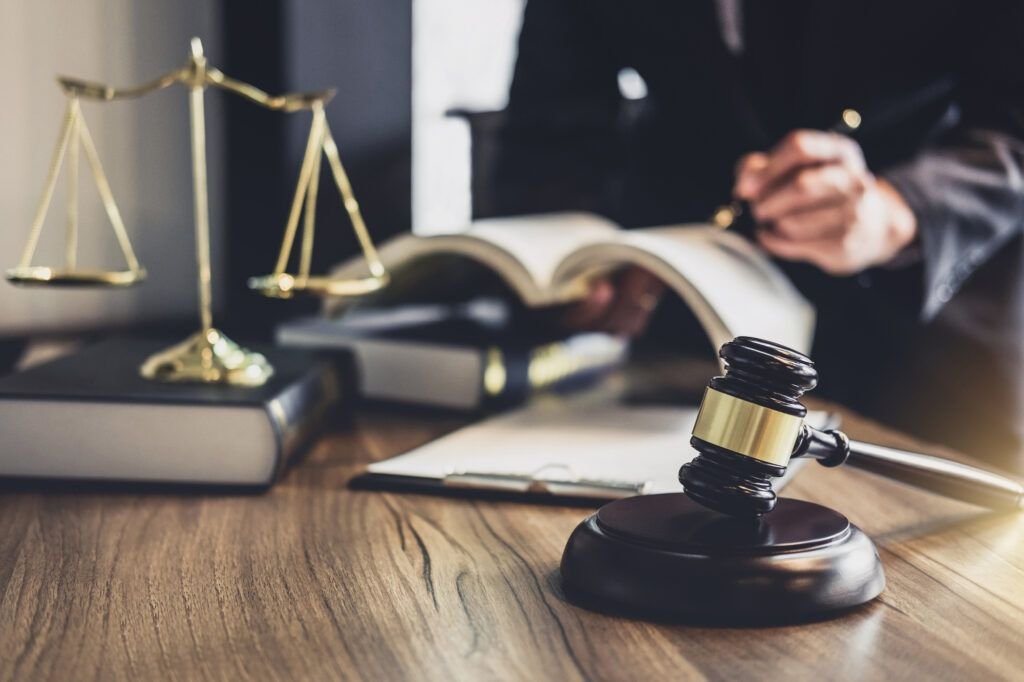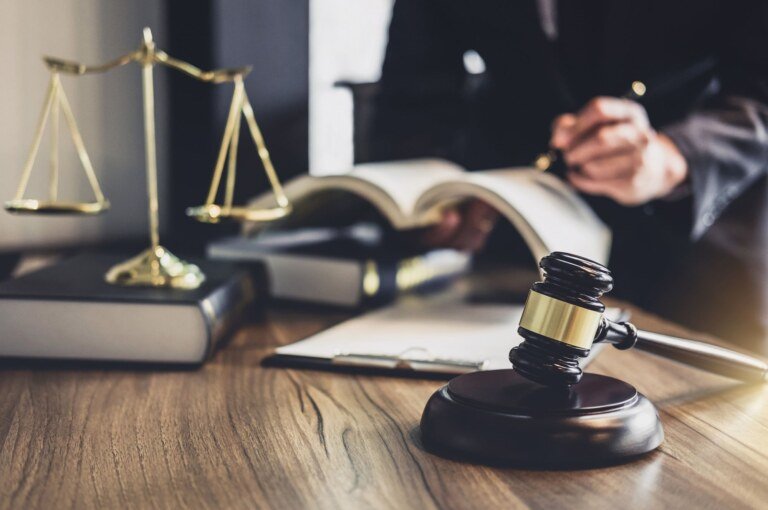Several high-profile defamation cases have made headlines in the UAE in recent years. The majority of them have anything to do with social networking. According to UAE law, insulting and defamatory statements made on social media are treated the same as those made in newspapers, books, or magazines. However, the consequences can be severe. Because of the casual nature of social media, writers often unaware of the influence their comments have. Because of its immediate and broad reach, the risk and damage created by social media are greater than those caused by older methods.
In the United Arab Emirates, what is defamation?
Defamation is the act of pursuing and making a false claim against a person or organization with the intent of harming their reputation. Due to the intangible nature of reputation, defamation is a difficult law to explain and argue in court.

Slander and Libel are two different types of defamation.
Slander is the term used to describe defamatory statements spoken vocally.
Slanders are inaccurate remarks spoken as if they were true to others, usually out of hatred or wrath. Presenting an unfounded allegation about a coworker taking something from the office, stating that a person has sexually transmitted diseases, telling false stories about a person to his spouse with the objective of harming their relationship, and so on are some examples of slander.
Libel is a term that refers to defamatory statements that are distributed through print media and are written down. Libel isn’t just limited to the written word. Libel can be created by defamation caused by signs, caricatures, photographs, or even the display of statues.
Defamation is a criminal offense in the UAE, not a civil offense as it is in most other countries. Articles 371 to 380 of UAE Federal Law No. 3 of 1987 allow a criminal charge for defamation to be brought against an individual or entity. According to the legislation, any individual or organization must avoid from making any comment that could be harmful to the person or organization to whom the statement is directed. All three components of the defamation offence must be met in order to make a slander allegation:
• A derogatory or untrue statement was made.
• The statement was made either verbally or in writing in front of a third person (witness).
• The statement has caused any amount of harm.
The merits of a complaint can be questioned if any of the foregoing factors are missing.
Defamatory words are uttered with the goal to subject someone to punishment, humiliation, or public contempt, according to the Court of Cassation (highest court). It was further clarified that mere criticism could be considered defamatory if it goes beyond “normal limitations” or harms the defamed person’s reputation.
Defamation on social media in the United Arab Emirates
Social media has grown increasingly important in the context of defamation law in recent years. We are increasingly using social media to vent our frustrations. The majority of the time, these outbursts are unintentional and a result of rage. It doesn’t matter how insignificant it sounds or appears; it can have terrible consequences.
It is illegal under Article 20 of the Cyber Crime Law to:
• to offend others or put them in circumstances where they might be punished,
• Using computer networks, electronic media, or social media to make others feel inferior.
If found guilty under Article 20, you might face a prison sentence and a fine ranging from AED 25,000 to AED 500,000. If you are a foreigner, you should expect to be deported.
Any website owner or group admin who stores, conceals, provides, or distributes illicit content is in violation of Article 39 of the Cyber Crime Law. Even if group admins are aware of it, failing to take appropriate action might result in them being held accountable.
The UAE has some of the toughest anti-defamation and cybercrime laws in the world. Several expatriates have been deported as a result of derogatory Islamophobic statements or social media posts. In terms of defamation via electronic media, the UAE has a zero-tolerance policy and a highly rigorous code of behavior.
Some things to keep in mind when using social media in the UAE:
• Defamation is a criminal offense in the UAE, and it is prosecuted under the Cybercrime Law if it occurs on a social media platform or any other electronic medium. This may result in harsher penalties.
• Individuals must be aware of the responsibilities and risks connected with using social media in the United Arab Emirates. It will assist if you do your homework before making any libelous or insulting remarks about religion, government officials, race, or family.
• All UAE-based businesses should revise and update their internet usage rules. Social media rules and obligations must be properly specified and articulated. All employees in the UAE must receive suitable training and instruction on how to make appropriate and responsible comments.
• Administrators and owners of websites, social media groups, and instant messaging groups must guarantee that all monitoring methods are in place. Furthermore, they must take the required measures as soon as such content is found.
Electronic defamation is a type of defamation that takes place through the internet.
In addition to social media, any defamatory remarks published on websites, forums, WhatsApp, SMS, or emails may be prosecuted under Article 20 of the Cybercrime Act.
Assume that someone uses the office space, network, or gadget to make defamatory claims and is charged with a crime. In that instance, the employer may be forced to participate in the legal proceedings. It makes no difference whether the issue arose because of the accused’s employment or because the employer’s name or brand was implicated. As a sponsor, the employer will be held responsible for some of the crime’s repercussions.
Police may need access to office computers throughout the investigation. If the gadget was used to perpetrate the crime, it is possible that it will be confiscated. Cybercrime law also allows for the permanent or temporary deletion of material and the shutdown of the offending website at the Court’s discretion, depending on the seriousness of the offence.
In the United Arab Emirates, there is a law against verbal abuse.
Using insulting words or any sort of verbal abuse, regardless of a person’s nationality, is a criminal offense in the UAE. In the UAE, the ‘F’ word, which you may use freely in your home country, can land you in legal trouble. According to Article 373 of the Penal Code No. 3 of 1987,
• Anyone who disrespects the honor or modesty of another by any means shall be punished by imprisonment for a period not exceeding one year or a fine not exceeding AED 10,000.
• If a public official or one in charge of public service is abused during, because of, or on the occasion of performing his duty or public service, if the abuse affects the honor or reputation of families, or if it is discovered that the abuse is intended to achieve an illegal purpose, punishment by detention for a period not exceeding two years and a fine not exceeding AED 20,000 or either of these two shall be imposed.
• If the abuse is published in a newspaper or other type of print media, it is deemed an aggravated case.
Article 374 of the same Penal Code reads as follows:
• If the slander or abuse is transmitted by telephone or directly to the victim in the presence of a third person, the offender faces a maximum penalty of six months in prison or a fine of AED 5,000.
• If the defamation or abuse happens when the victim is alone, a fine of not more than AED 5,000 will be imposed. It can be done in person or through any type of message.
• When defamation or abuse is perpetrated against a public official or someone in charge of a public service while, because of, or on the occasion of executing the duty or public service, it is deemed an aggravated case. It is also deemed an aggravated case if it undermines the honor or reputation of families, or if it is discovered that it serves an unlawful aim.
How do you file a defamation case in the United Arab Emirates?
In the UAE, any defamation and insulting legislation violations are taken quite harshly. The law has outlined the legal options open to someone whose reputation has been slandered by another. Anyone who wants to register a complaint should start with the police and work their way up to public prosecution. Any victim of defamation has the right to file a police report within three months of becoming aware of the offence.
How can you file a complaint against the defendant?
• You can either use the smartphone app or go to the Dubai Police internet portal to file a complaint.
• You can also go to your local police station or dial 999.
• If an employee believes memos and letters addressed to him or her are defamatory, he or she can file a complaint with the Ministry of Human Resources and Emiratization.
If the police believe your complaint has enough merit to pursue the offender, they may file a case against him. After that, the case will be referred to the public prosecutor for charges under the UAE’s Penal Code and Defamation Law. The prosecutor must question the defendant within 48 hours of the complaint being filed. Victims can seek civil compensation for both pecuniary and moral losses after a criminal court ruling in their favor.
Conclusion
Although UAE law stipulates that a lawsuit must contain all of the required elements in order to be heard in court, in practice, these matters are frequently decided based on who files the case first.
Defamation lawsuits are generally easy to convict in, which is why lawyers recommend pursuing them to support allegations in family or civil proceedings. Though solid statistics aren’t available, it is observed that the majority of family court cases in Dubai involve verbal abuse.



